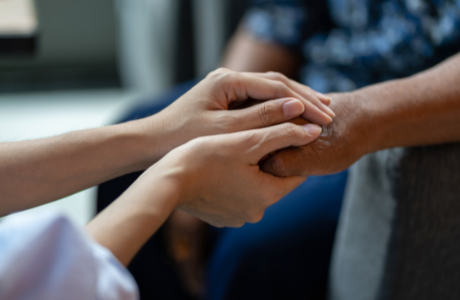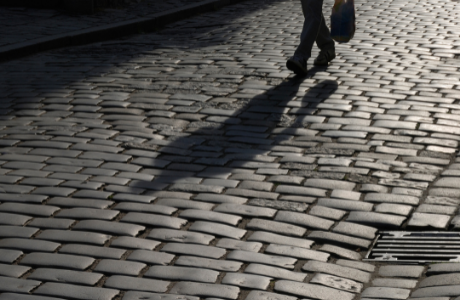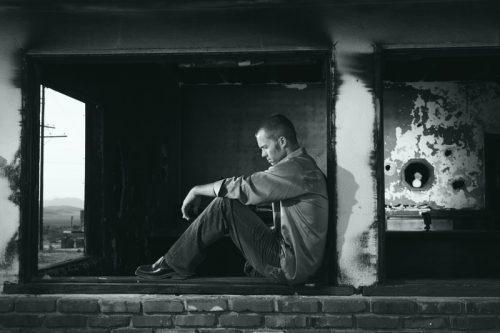Today is RUOK Day, “our national day of action dedicated to reminding everyone that every day is the day to ask, “Are you OK?” And to offer support to those struggling with life’s ups and downs.
Mental illness is nothing new. We are just more aware these days than in previous times. As the human race has developed in insight, knowledge, and understanding, people have become more conscious of mental illnesses and care for those who live with them.
Mental Health
World Health Organisation defines mental health as “… a state of wellbeing in which the individual realizes his or her own abilities, can cope with the normal stresses of life, can work productively and fruitfully, and is able to make a contribution to his or her community.”
If that definition describes you, you are considered to be mentally healthy most of the time. If it doesn’t, you’re probably living with a mental illness. According to the Better Health website, “Many mental illnesses are thought to have a biological cause. What triggers a mental illness is not known.”
The History of Mental Illness
For thousands of years, ancient peoples considered mental illnesses to be caused by the struggle between good and evil and the devil’s work. The antidote was an exorcism.
For centuries people believed mental illnesses were the result of “bad blood” or weakness of character. Hippocrates was primarily responsible for introducing that mental disorders were all biological in origin, and he wasn’t entirely wrong.
Well-known philosophers like Aristotle & Plato (4th and 5th centuries before Jesus) wrote about mental disorders resulting from psychological, social, and cultural factors. They also advocated humane and responsible care for individuals with psychological disturbances and were, in many ways, well ahead of their time.
A century ago, mental illnesses were managed by imprisoning the “insane” behind asylum walls to reduce the risk posed to the broader community. People were punished for being ill, something that was reflected in the language like ‘lunatics’ and ‘inmates.’ Their keepers was ‘wardens.’
How things have changed
Tremendous advances in the understanding and treatment of mental illnesses have occurred over the past 100 years.
In 1955 the first Anti-psychotic drugs became available, and the practice of Psychiatry developed from there. In 1981, the Richmond report argued for deinstitutionalisation of those with a mental illness. This began in Australia in 1992. It was poorly funded and orchestrated. We’ve come a long way, but we still have far to go.
Mental distress in the Bible
One of the many things I appreciate about the Bible is its raw honesty. Consider David’s expression of distress in Psalm 102, “My heart is blighted and withered like grass; I forget to eat my food. In my distress I groan aloud and am reduced to skin and bones” (4-5). He continues by revealing his insomnia. Other Bible characters who appeared to live with mental illness include Elijah (1 Kings 19:4–5) and Hannah (1 Samuel 1:7–8).
Jesus experienced mental turmoil in the garden of Gethsemane, “My soul is overwhelmed with sorrow to the point of death” (Matthew 26:38). “Jesus Wept” is the shortest verse in the Bible that once and for all demolishes the idea that Jesus doesn’t understand your deepest feelings.
An apostle’s experience
Paul was no stranger to suffering. He had more than his fair share of difficulties, depression, and anxieties. And he’s candid about them in his writings, “For we do not want you to be ignorant, brothers, of the affliction we experienced in Asia. For we were so utterly burdened beyond our strength that we despaired of life itself. Indeed, we felt that we had received the sentence of death …” (2 Corinthians 1:8-9)
The Greek word translated “Utterly burdened” refers to an overloaded ship riding low in the water. See that picture in your mind. Paul was so utterly, unbearably crushed that he couldn’t get up. Inertia gripped his being so much he ‘despaired of life itself.’ His depression was so deep that he was ‘without a way of escape.’ In his mind right then, there was no exit and no hope.
Paul speaks here from the depths of his very human heart. Thankfully, he shared with others that he had thoughts such as these. He did not put on an air of invincibility. I’m encouraged by this man’s vulnerability, and I hope you are too.
You’re in good company
All of us face tough times. Some experience depression or other types of mental illness. 1 in 5 Australians will face some sort of mental disorder in any given year. 45% of us will deal with a mental illness at some stage in our lifetime.
In my younger years, I battled with depression. Something that was triggered a decade ago when I was seriously burned. I reached out for help and received it. That has made a world of difference.
Finding hope and healing
Firstly, seek help & knowledge. A mental illness is a sign that something is wrong, but there are several possible causes ~ social, psychological, spiritual, or biological. These are often interrelated, so a holistic approach is best. Chat with your GP, receive pastoral care and prayer, and find a good counsellor. (Bayside Church pastors can help you with this ~ connect@baysidechurch.com.au)
Exercise increases wellbeing and reduces symptoms of depression and anxiety. Eat healthily, avoid alcohol, and get regular check-ups.
Stay outwardly focused by engaging in work, hobbies, creative arts, or sports with others. Resist the temptation to talk about yourself and your problems. And engage in activity that contributes to others.
Genuine faith
Suffering is part of the human condition, so don’t buy into poor theology that we shouldn’t suffer in this life, that it’s normal to be happy and healthy all the time. Suffering is not a threat to your faith in God.
Genuine faith can grow as you meditate on Scripture, pray & worship, and build robust relationships in your church community. Make sure you are a part of a healthy Christian family where people will be compassionate and understanding.
Matthew Henry was a non-conformist minister & author in the 1700s. About compassion, he wrote, “Let us learn how to value our own reason, and to pity the case of those that are under the prevailing power of melancholy or distraction, or are delirious, and to be very tender in our censures of them and conduct towards them, for it is a trial common to men, and a case which, some time or other, may be our own.”
A final word
At times when you’re feeling overloaded, like a ship with too much cargo sinking into the water, may I encourage you to reach out for help and allow others to help you carry some of the overloads?
The old saying, “A burden shared is a burden halved,” is true. Researchers from California have proved that the best way to beat stress is to share your feelings. Sharing a threatening situation “buffers individuals from experiencing the heightened levels of stress that typically accompany threat.”
The Bible encourages us to “Share each other’s burdens” and “Confess your faults one to another, and pray one for another, that you may be healed.”
A healthy Christian community is one in which we walk gently with one another, where we view each other as loved by God and therefore worthy of love and respect. Where the church is a safe place for those who suffer. We all acknowledge that we struggle with weak areas in our lives and will also be good at setting boundaries and recognising that we cannot meet every need.
I am not a mental health expert, and I don’t pretend to be. In writing this blog, I have read widely and taken guidance and advice from a mental health professional.




 One in two Australian men will have had a mental health issue at some time in their lives. According to the
One in two Australian men will have had a mental health issue at some time in their lives. According to the  Men’s mental health and suicide is something that touches (or will touch) us all. Early intervention is a key strategy in mental health recovery. I encourage you to start and continue those difficult conversations with loved ones, stay connected to your community and seek help if you recognise some warning signs in yourself or another.
Men’s mental health and suicide is something that touches (or will touch) us all. Early intervention is a key strategy in mental health recovery. I encourage you to start and continue those difficult conversations with loved ones, stay connected to your community and seek help if you recognise some warning signs in yourself or another.


